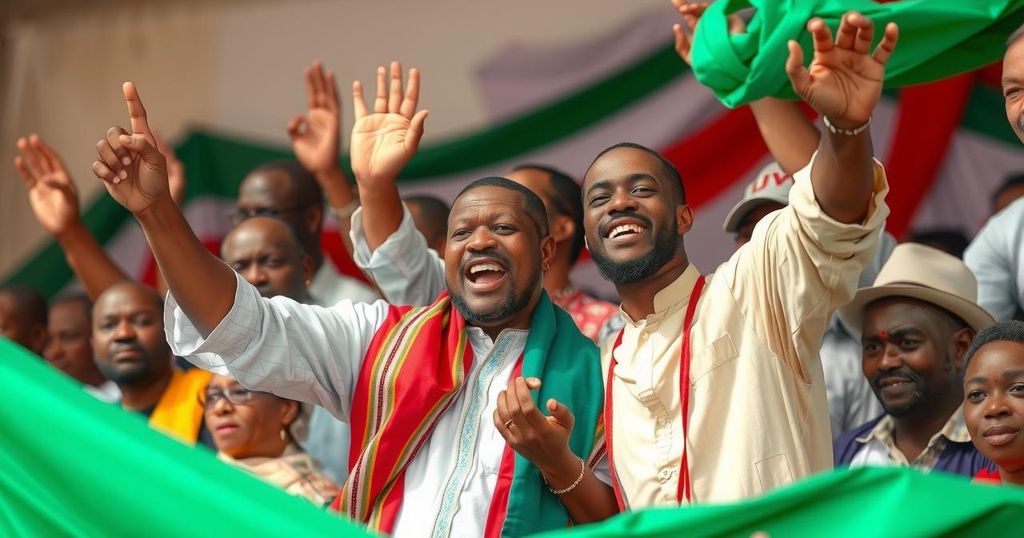Chad’s ruling Patriotic Salvation Movement party won the majority in last month’s parliamentary elections with 124 out of 188 seats. The election garnered a 51.5% voter turnout and was boycotted by key opposition parties, raising concerns of legitimacy. President Mahamat Idriss Deby aims to promote decentralization in governance. The country remains affected by security issues and a shift in military alliances, notably with France.
In the parliamentary elections held last month, Chad’s ruling Patriotic Salvation Movement party secured a commanding majority, obtaining 124 out of 188 parliamentary seats, according to provisional results. The election, marking the first parliamentary vote in over ten years, saw a voter turnout of 51.5%. This process was part of a broader effort to transition to democracy after the ascension of President Mahamat Idriss Deby following the death of his father, the long-serving Idriss Deby Itno. Notably, the main opposition parties, including the prominent Transformers party, boycotted the election, citing concerns over the credibility of the electoral process. In his declarations, President Deby expressed optimism that the elections would promote decentralization, distributing political power more effectively across various levels of government. Moreover, the country is currently facing significant security challenges, particularly from Boko Haram militant activities, as it navigates changing diplomatic relations, including a shift in its military ties with France.
The recent parliamentary elections in Chad represent a significant moment in the country’s political landscape, marking the first such elections since the passing of former President Idriss Deby Itno over a decade ago. His son, Mahamat Idriss Deby, took power as a military ruler in April 2021 following his father’s death. The transition to democracy, as described by President Deby, is underscored by efforts to decentralize authority, allowing local governance structures to gain strength. However, these elections were amidst a backdrop of stability concerns due to ongoing security threats from groups like Boko Haram, complicating the political landscape and the integrity of the electoral process.
In summary, the ruling Patriotic Salvation Movement party’s decisive victory in Chad’s parliamentary elections underscores President Mahamat Idriss Deby’s consolidation of power amid significant opposition boycotts and ongoing security challenges. The election, framed as a pathway toward greater political decentralization, raises questions regarding its legitimacy and the prospects for true democratic governance in Chad, especially given the calls from opposition parties for a credible electoral process. Furthermore, it highlights the precarious situation in which Chad finds itself, balancing the need for political stability against the realities of militant threats and diplomatic shifts.
Original Source: www.euronews.com






